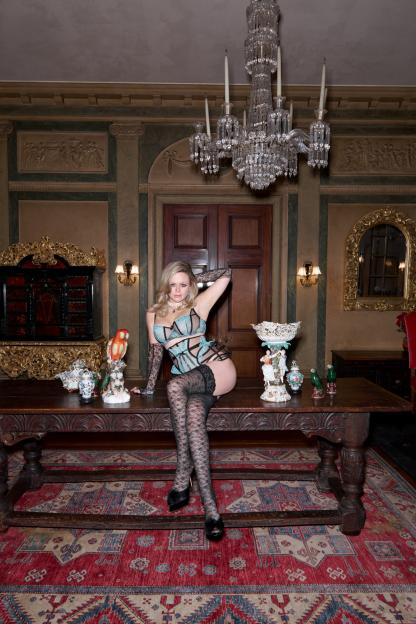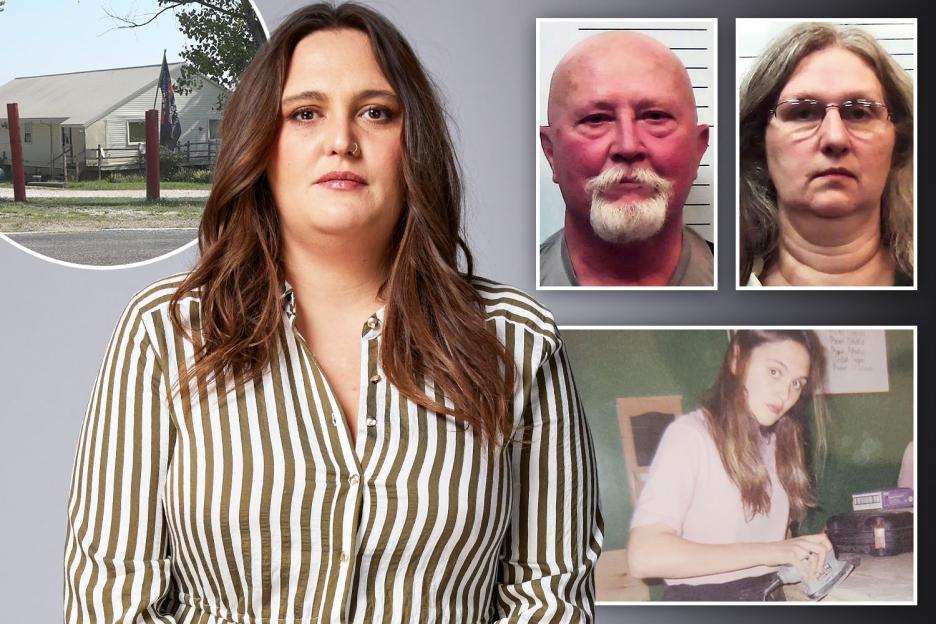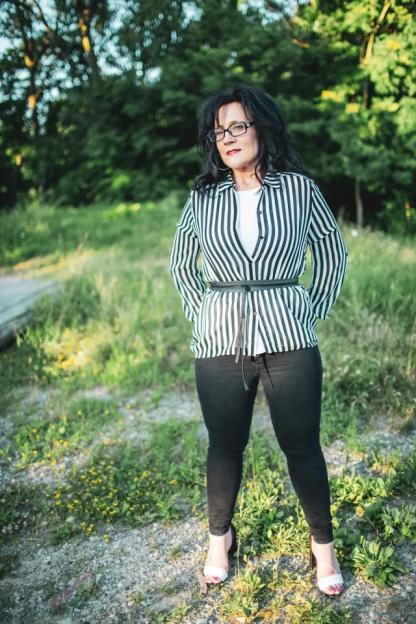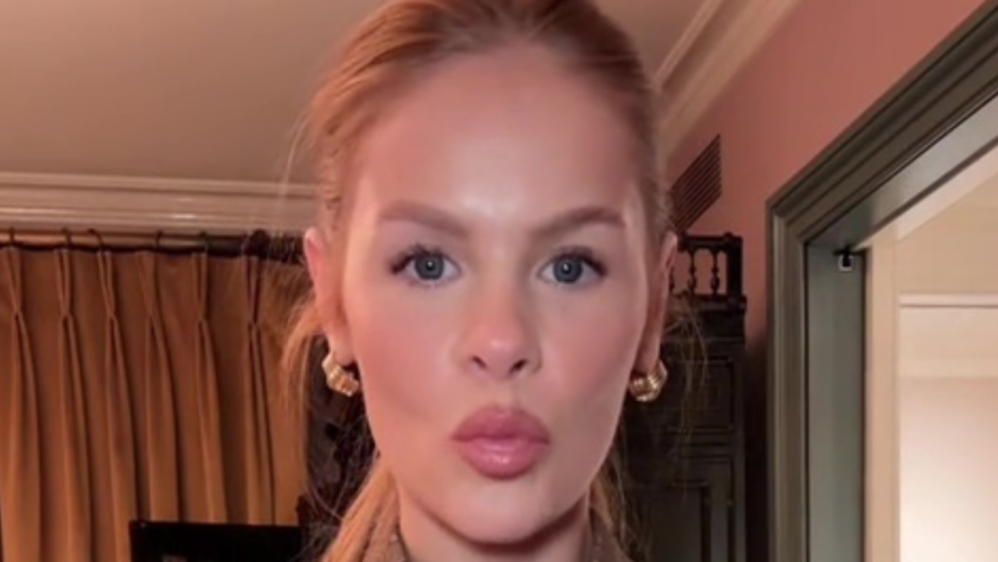WAITING to have photos taken on my wedding day, a guest’s question left me reeling.
“Why are your parents not here?”; she asked.
 DrBeccaBland has been estranged from her parents for the last 10 years
DrBeccaBland has been estranged from her parents for the last 10 yearsIt wasn’t the first, and won’t be the last time I’m asked why my mum and dad aren’t in my life, and haven’t been for many years.
As anyone who’s experienced estrangement knows, the lack of understanding about how deep family fractures can be is one of the hardest things about it.
Family fractures
When others just don’t ‘get it’, it only feeds the sense of isolation that can accompany stepping away from the people you’re expected to be closest to.
I understood how difficult it was for that guest to grasp how I could be saying my vows, smiling for photos and having my first dance, without the very people who brought me into the world being there to share the moment with me.
It’s why I’ve dedicated the last 12 years of my life to supporting and advocating for people like me â who’ve found themselves estranged, to help them feel less alone, and better understood and supported, both by society and government.
I grew up an old child in a small village in Yorkshire. I foundlife at home very difficult and was cared for by my maternal grandmother Molly.
Life was difficult
I always struggled with my relationship with my mum, it wasn’t clear to me that she’d wanted to have children.
In 2002, I moved to Brighton for university. It was only then, being a bit older and more mature, and observing my new friend’s relationships with their parents, that it fully hit me how unlike theirs mine had been.
I saw other parents show love and concern for their children, check in on them, and cherish the bond they had with them. I felt likeI’d never experienced a connection like that with mine.
I began counselling and made attempts to explain to my parents in writing how I felt, how they’d hurt me and give them the opportunity to offer me a different kind of relationship.
Moving forwards
But it felt to me like they weren’t willing, and that they chose not to change.
And so, by 2005, I knew I couldn’t stay in the relationship we had. I had to move forward in my life without them.
With that decision, I became one of the estimated five million people in the UK who’ve made the choice to no longer be in contact with a member of their family.
 By 2005, Becca knew she had to walk away from her parents
By 2005, Becca knew she had to walk away from her parentsI’ve been on a journey since then, and parts of it have been very challenging.
In the early years particularly, despite the love and stability my grandma gave me, I experienced a maelstrom of emotions from raging anger and deep sadness, to shame and self-judgment.
To cope, I worked, drank and exercised relentlessly, these addictions hiding the massive emptiness I felt inside.
I also made awful mistakes when it came to relationships.
For a long time, I held the attitude that if I was estranged from my parents, I didn’t want to be estranged from other people, and that kept me with men who were abusive, controlling and violent, as well as in friendships that weren’t good for me.
I would also avoid being honest about my estrangement because of the stigma that surrounds it- like when I told an ex boyfriend and his family that my parents lived in Melbourne and that’s why I wasn’t spending Christmas with them.
 Becca admitted she has ‘worked, drank and exercised relentlessly’ to mask her feelings of loneliness
Becca admitted she has ‘worked, drank and exercised relentlessly’ to mask her feelings of lonelinessIt took years, and lots of therapy, for me to become more trusting in myself of who is right for me and who I surround myself with, and to feel unashamed of who I am.
In 2012, I set up the charity Stand Alone, to support and raise awareness about adults that are estranged from their family or children.
Not only did I want to create a source of advice and support, which hadn’t existed when I had found myself part of this community, I also wanted to influence change.
Massive emptiness
For example, by then I had learned how difficult estrangement could make university life, with students ‘homeless’ in the holidays because they had no family to return to, or struggling to rent accommodation with no parental guarantor.
The ripple effect of a separation from family was immense and went far beyond the emotional.
Through the charity, I undertook research, collected data about estrangement and published articles and surveys, all of which helped to shine a light on this often misunderstood and stigmatised family dynamic.
 In her teens, Becca was looked after by her maternal grandma Molly, but she sadly passed away in 2020
In her teens, Becca was looked after by her maternal grandma Molly, but she sadly passed away in 2020Stand Alone also established support groups, both in the community and in prisons, where estrangement is very common.
The people I encountered through the charity were female, male, all ages and all walks of life, from convicted criminals to the very affluent. Estrangement can happen to any of us.
And the reasons for it were just as varied, ranging from abuse to clashing political views, issues with step-parents and rigid, inflexible values.
No regrets
I know from my own experience, and from the people who were supported by Stand Alone, that the reasons behind estrangement are rarely clean-cut. It’s so hard when someone asks ‘why?’ to give them a concise answer.
As the years went past, I didn’t miss my parents or regret our estrangement, but that doesn’t mean there weren’t moments when it hit me like a sledgehammer how ‘different’ life was for me, compared to others.
Milestone birthdays like my 30th, with no card or gift from them, or the day in 2019 when I received my honorary doctorate from the University of Brighton for raising awareness of family estrangement and national policy, and they weren’t in the audience to applaud.
 Becca set up Stand Alone in 2012 to support and raise awareness about adults that are estranged from their family
Becca set up Stand Alone in 2012 to support and raise awareness about adults that are estranged from their familyAnd of course, my wedding day in 2018. I didn’t want them there, they would have ruined the day, but I still recognised the significance of the absence of the bride’s parents.
In 2023, I stepped down as Chief Executive of Stand Alone and now work as a coach, supporting individuals and families experiencing estrangement, and training therapists how to support people too.
I talk to my clients about the five stages of grief when it comes to estrangement. These are disassociation, feeling anger and sadness, letting go of the family members we didn’t have, feeling strength and peace.
It’s not an exhaustive list and people may experience them in different orders. Estrangement is always an individual experience and the support I give reflects that.
Some of the people I work with want to find a way back to one another, and others want to move forward and have a more empowered life on their own.
Many paths flow from an estrangement, all are valid.
Estrangement is on the rise and I believe one of the reasons for that is younger generations value healthy relationships over having a relationship at any cost.
Life is hard these days, from the cost of living to the challenges to mental health, and increasingly people don’t have the emotional bandwidth for relationships that do not bring positivity, irrespective of whether they are with blood relations.
I have poured my energy into forging strong and wonderful friendships, creating a ‘family’ of friends who bring joy into my life and hold me during difficult times.
Living loss
I’m currently single after my marriage ended last year.
After nine years together, and five of them married, it was so hard to walk away from one another, but my past experience had given me the courage and belief to know I shouldn’t give up on my dream of creating the family I didn’t have as a child.
Sadly, my grandmother died in 2020, but I know she would have supported this decision.
I’ve been asked, is being estranged from my parents like experiencing a bereavement? I say it’s like a ‘living loss’, because they are out there somewhere in the world, going about their lives, but not part of mine.
I know a time will come when they die, and I am a bereaved daughter. How will I feel then? I really don’t know. Would I attend their funerals? Again, I don’t know.
I will make those decisions when they need to be made, I don’t spend time now worrying or pondering what lies ahead and what choices I will make then.
Choosing to lose something as fundamental as a parental relationship can mean less understanding, less support and less compassion, versus a death, because there’s a belief you could repair things if you really wanted to.
What I would like more people to understand is that sometimes it’s just not possible, or a good idea, to go back.
For more information on Becca’s work, please visit: www.beccabland.com







